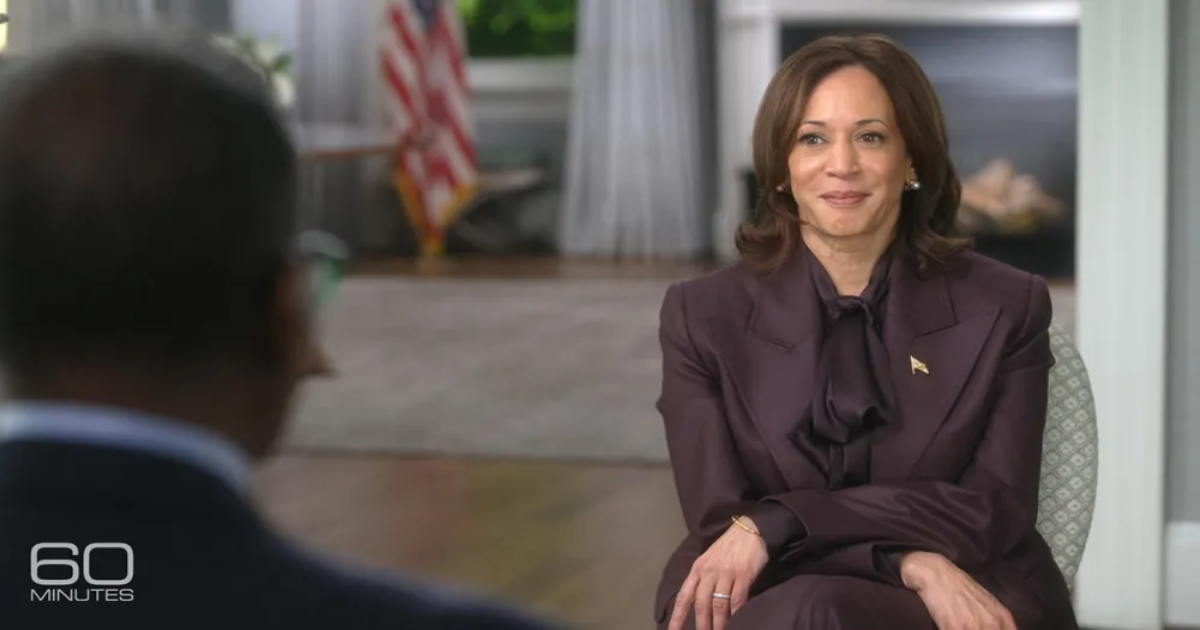Lawyers for Paramount Global and President Donald Trump have agreed on a mediator to pursue a settlement in a lawsuit filed by Trump against CBS — demanding $20 billion in damages — over a “60 Minutes” interview with Kamala Harris, the New York Times reported.
Paramount declined to comment. A lawyer for Trump did not respond to a request for comment. The Times report, which cited anonymous sources, did not identify the mediator.
The Texas federal court hearing the case said in a Feb. 20 scheduling order that “Any mediation must be completed by Saturday, December 20, 2025.”
Trump sued CBS a few days before the November 2024 presidential election, alleging that CBS News‘ “60 Minutes” report violated a Texas consumer protection law by deceptively editing an interview with VP Kamala Harris. Earlier this year, the president expanded the lawsuit, alleging an additional claim under the federal Lanham Act and seeking at least $20 billion in damages.
Last month, Paramount moved to dismiss Trump’s suit as “an affront to the First Amendment.” The company filed two motions to dismiss the case, one for lack of jurisdiction and the other on grounds that consumer fraud laws do not govern editorial speech.
Paramount is seeking to merge with Skydance Media, a deal that is still pending approval by the FCC. The agency’s chairman, Trump-appointed commissioner Brendan Carr, has said the FCC would consider the “60 Minutes” case in its review of the merger.
In a previous statement, a Paramount Global spokesperson said that Trump’s “60 Minutes” lawsuit “is completely separate from, and unrelated to, the Skydance transaction and the FCC approval process. We will abide by the legal process to defend our case.”
After Trump initially filed the suit, CBS objected that neither the broadcaster nor Trump resides in Texas, and therefore there was no reason to litigate the case in the state. In response, in an amended complaint, Trump added Ronny Jackson, the Republican congressman from Amarillo, Texas, as a co-plaintiff. Trump’s amended complaint alleges that Jackson is, like Trump, a consumer of news who was “deceived and misled” by the “60 Minutes” interview.
On April 7, lawyers for Paramount and CBS filed a motion with the court to compel the plaintiffs to produce documents requested in discovery (“so as not to waive any rights”). “Despite their insistence that discovery move forward, Plaintiffs have shown very little desire to produce their own documents, relying on unfounded objections and delay tactics,” the Paramount and CBS legal team said.
For example, according to the filing, “Despite making clear that he brought this suit in his personal and not official capacity — indeed, he filed this lawsuit while still a private citizen — President Trump invoked executive privilege in response to eighteen of Defendants’ Requests.” Jackson “similarly invoked executive privilege seventeen times — including, puzzlingly, in response to six Requests as to which President Trump did not invoke the privilege.”
In addition, Trump and Jackson’s responses “contained a number of inappropriate and inapplicable objections,” according to the Paramount and CBS lawyers. In particular, in response to 30 requests related to statements about damages in the amended complaint, Trump claimed that the requests were “untimely” and that he would “not provide a response unless or until expert discovery is over.” Jackson offered the same answer in response to 10 requests, according to the filing.
Separately, in March CBS asked the FCC to reject a complaint by a right-wing public interest law firm alleging the “60 Minutes” interview with Harris represented “news distortion,” arguing that the complaint is premised on the notion that the U.S. government can be a “roving censor.” CBS, in its March 7 response to the FCC over the Center for American Rights complaint, said that “The Complaint filed against CBS for ‘news distortion’ envisions a less free world in which the federal government becomes a roving censor — one that second guesses and even punishes specific editorial decisions that are an essential part of producing news programming.”
Carr, as part of an FCC probe into potential “news distortion” into CBS News, demanded that news outlet turn over all materials tied to the “60 Minutes” Harris segment including transcripts and unedited video. In February, CBS News did so, maintaining that the “60 Minutes” broadcast “was not doctored or deceitful.”
Meanwhile, in a separate case, Trump last year sued ABC News and George Stephanopoulos after the anchor inaccurately stated on-air that Trump had been found liable for rape. (Trump was found liable of sexually abusing and defaming writer E. Jean Carroll by a New York jury.) In December 2024, Disney and ABC News agreed to pay $15 million to settle Trump’s defamation lawsuit.
